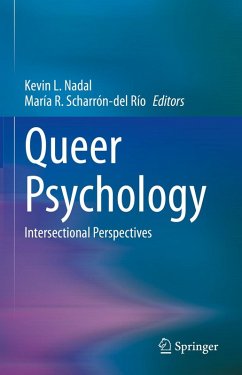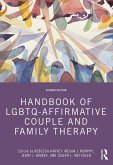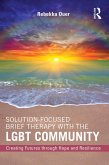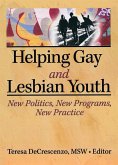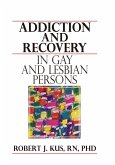Kevin Leo Yabut Nadal, Ph.D. is a Professor of Psychology at both John Jay College of Criminal Justice and the Graduate Center (GC) at the City University of New York (CUNY). From 2014- 2017, he was the Executive Director of the CLAGS: The Center for LGBTQ Studies at the Graduate Center (GC) at the City University of New York (CUNY), and he was the first person of color to hold this position in 25 years of the organization. From 2015-2017, he was the President of the Asian American Psychological Association; he was the first openly gay person to serve in this role. Within AAPA, he co-founded the Division on Filipino Americans in 2010 and the Division on LGBTQ Issues in 2012. He is a National Trustee of the Filipino American National Historical Society (FANHS) and the co-founder of the LGBTQ Scholars of Color Network - a national network committed to academics and researchers who identify as LGBTQ people of color. He is one of the leading researchers in understanding the impacts ofmicroaggressions, or subtle forms of discrimination, on the mental and physical health of people of color; lesbian, gay, bisexual, transgender, and queer (LGBTQ) people; and other marginalized groups. He has published over 100 works and 10 books on multicultural issues in the fields of psychology and education, including That's So Gay: Microaggressions and the Lesbian, Gay, Bisexual, and Transgender Community (2013, American Psychological Association), Sage Encyclopedia of Psychology and Gender (Sage, 2017), and Microaggressions and Trauma (2018, American Psychological Association). He has contributed to The Huffington Post, The New York Times, and Buzzfeed; he has been featured on ABC, CBS, NBC, PBS, the Weather Channel, the History Channel, HGTV, The Filipino Channel, and others. In 2017, he won the American Psychological Association Early Career Award for Distinguished Contributions to the Public Interest, and in 2019, he received the Richard Tewksbury Award for significant contributions to scholarship or activism on the intersection of crime and sexuality. For more information, visit www.kevinnadal.com. María R. Scharrón-del Río, Ph.D. is a Professor of the School Counseling Graduate Program at Brooklyn College, City University of New York (CUNY). A predoctoral Ford Foundation and an American Psychological Association (APA) Minority Fellowship Program (MFP) fellow, they received their Ph.D. in clinical psychology from the University of Puerto Rico, Río Piedras. After their clinical internship at the Harvard Medical School, they worked as an assistant child psychologist at the Washington Heights Family Health Center, a primary-care clinic that serves a predominantly Latinx immigrant community in New York City. They are an active leader in GLARE (GLBTQ Advocacy in Research and Education) since joining the Brooklyn College faculty in 2006. They are committed to the development of multicultural competencies in counselors, psychologists, and educators using experiential and affective educational approaches. Their research, scholarship, and advocacy focus on ethnic and cultural minority psychology and education, including liberation pedagogies, intersectionality, multicultural competencies, LGBTQ issues, gender variance, spirituality, and well-being. They have published over 20 works - including peer-reviewed articles, chapters, and being co-editor of seventh edition of Counseling Across Cultures -, and have over 120 presentations in local, national, and international conferences and events.
Chapter 1: Introduction to Queer Psychology.- Chapter 2: Intersectional Approaches.- Chapter 3: Trans Identities and Gender Nonconformity in Psychology.- Chapter 4: Sexual Orientation Identity Development.- Chapter 5: LGBTQ Health.- Chapter 6: LGBTQ Mental Health.- Chapter 7: Queer Discrimination.- Chapter 8: Queering Psychology Research Methods.- Chapter 9: Queer and Trans Issues in Clinical Work.- Chapter 10: Queer/ Trans Sex and Relationships.- Chapter 11: Queer/Trans Families and Parenting.- Chapter 12: Issues for LGBTQ Children & Youth Potential.- Chapter 13: Issues for LGBTQ Elderly Potential Author: Vic Muñoz.- Chapter 14: Queer Vocational and Workplace Considerations.- Chapter 15: Queer Religion, Spirituality, and Atheism.- Chapter 16: Queer Forensic Psychology.- Chapter 17: Conclusion: Where Do We Go from Here.

